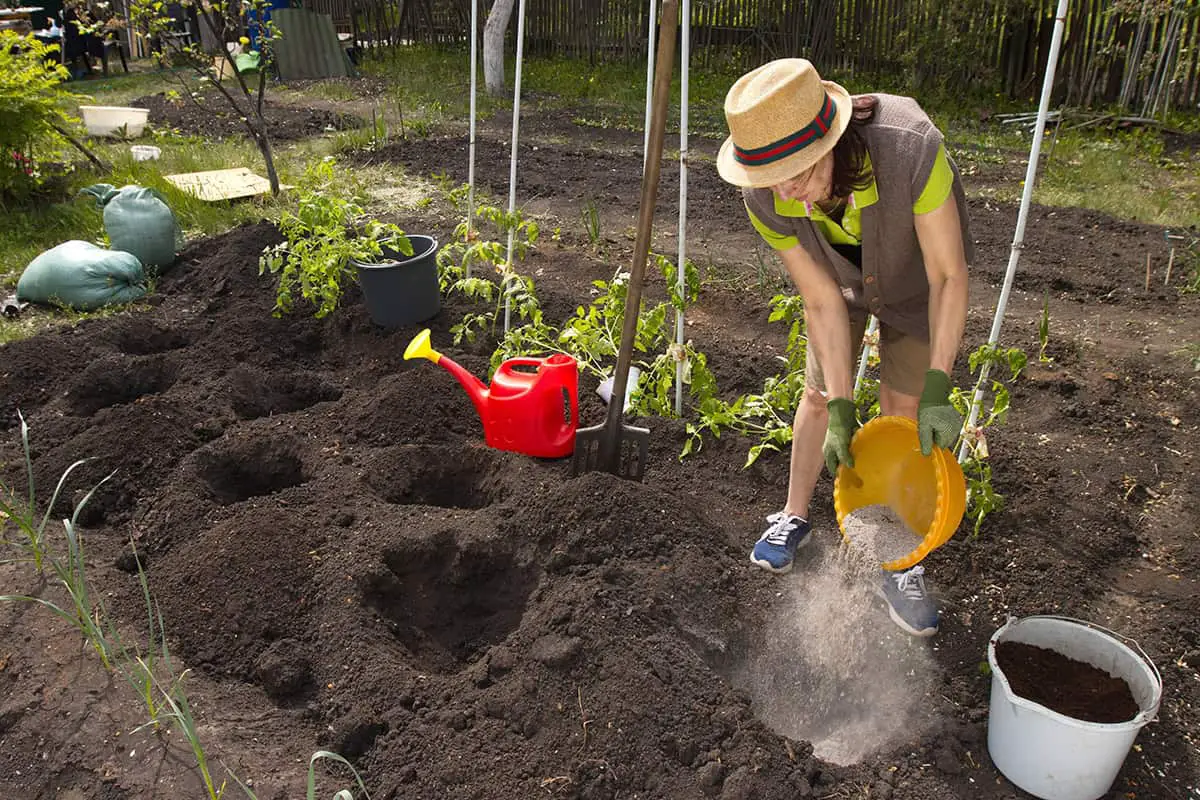You’re ready to plant your tomato seedlings, hoping for a bountiful harvest this summer. As you dig the holes, you wonder if there’s more you could do to give your tomatoes a strong start. Adding the right ingredients to the planting hole can make a significant difference in the health and productivity of your plants. Here are some recommended things you can add to these tomato planting holes.
Table of Contents
Why Are Tomato Planting Holes Needed?
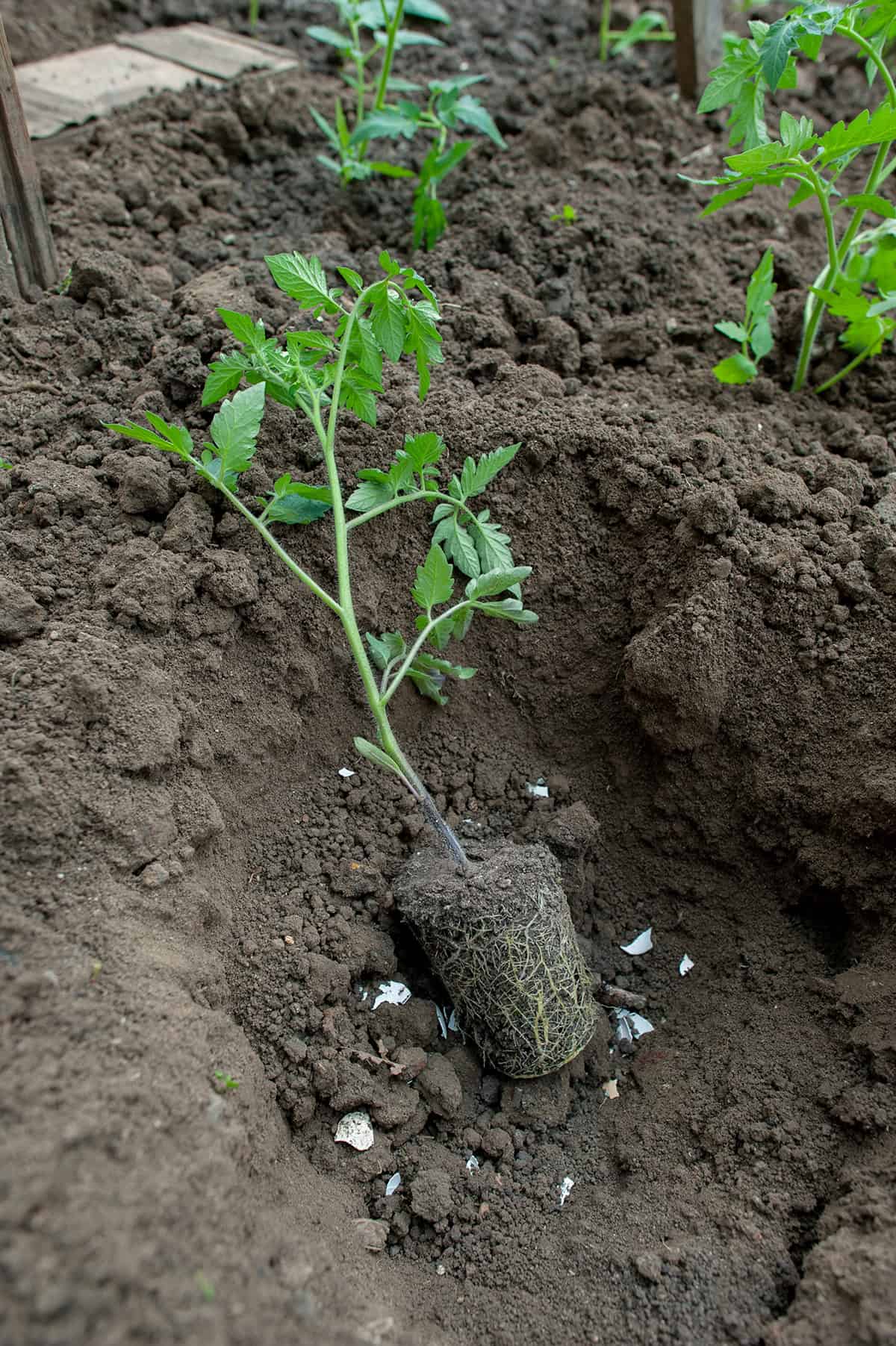
Tomato planting holes provide a structured space for the roots to grow. They allow you to incorporate essential nutrients directly into the root zone. Breaking up the soil in the planting hole improves drainage and root penetration. When you dig a planting hole, you can add compost or aged manure. This helps to enhance soil fertility immediately around the roots. Planting holes ensures that the plant is settled at the right depth.
Things To Put In Your Tomato Planting Hole
When planting tomatoes, incorporating various amendments into the soil can significantly improve growth and productivity. Each additive brings unique benefits, ensuring robust and healthy plants.
Compost or Aged Manure
Compost or aged manure enriches the soil with essential nutrients. It improves soil structure and microbial activity, leading to better root development and plant growth. Aim to mix a generous amount of compost into the planting hole. This blend enhances moisture retention, which is crucial for tomatoes.
Aged manure, free from pathogens and weed seeds, provides a slow-release source of nitrogen, phosphorus, and potassium. This organic matter helps maintain a balanced pH, optimizing conditions for your tomatoes.
Bone Meal
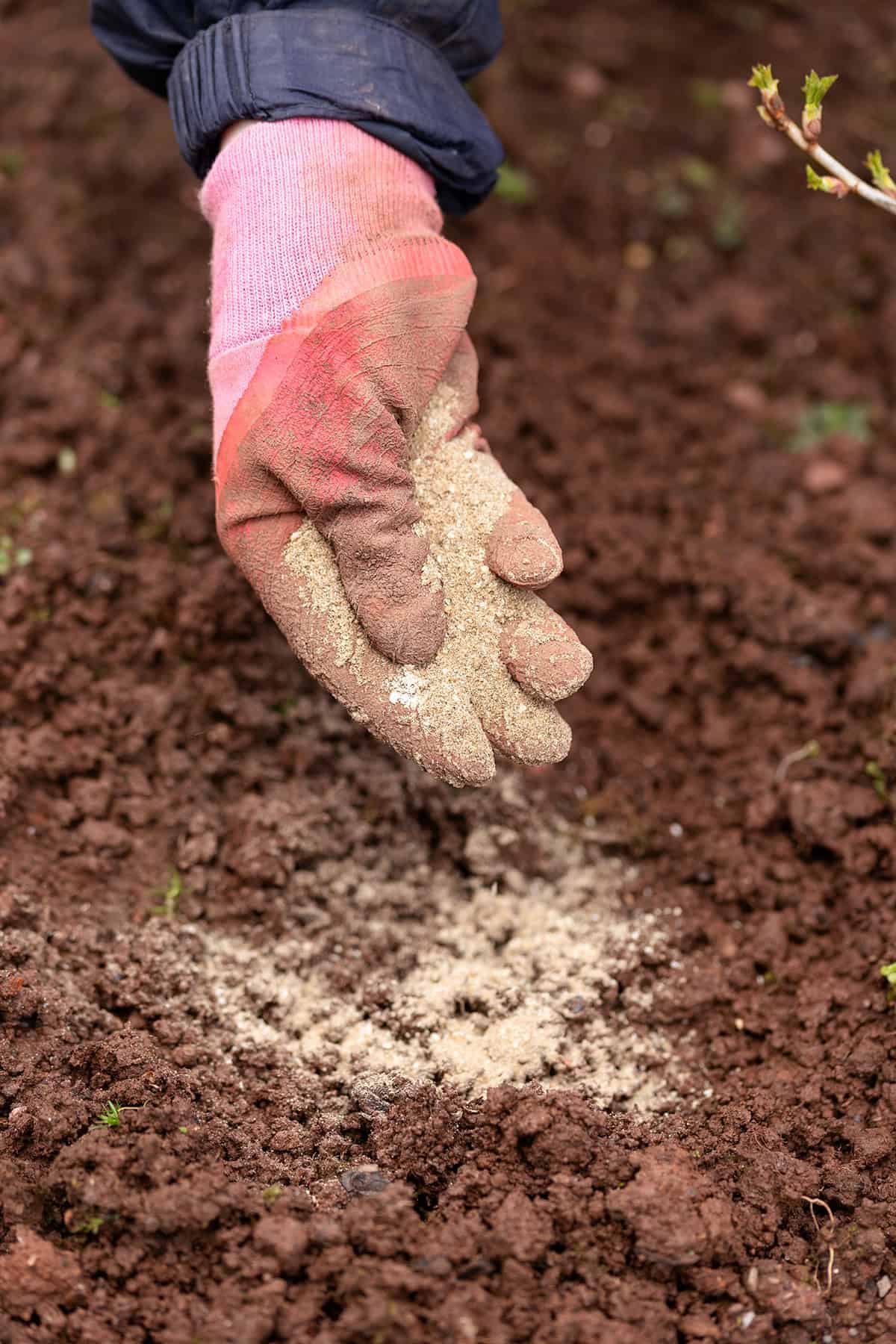
Bone meal is an excellent organic source of phosphorus. Phosphorus is crucial for root development and flowering. Adding a handful of bone meal to the planting hole provides long-term nourishment, promoting healthy blooms and fruit sets.
It’s particularly beneficial for preventing blossom-end rot, a common issue in tomatoes. Ensure you mix it well into the soil to prevent any risk of direct plant contact, which could burn roots. Its slow-release nature ensures continued feeding throughout the growing season.
Epsom Salt
Epsom salt offers magnesium and sulfur, both vital nutrients for tomatoes. Magnesium enhances photosynthesis, boosting plant growth, while sulfur aids in enzyme and protein synthesis. Dissolve a tablespoon of Epsom salt in water and pour it into the planting hole. This method ensures quick absorption by the roots.
Regular applications throughout the growing season can prevent common deficiencies such as yellowing leaves. It also helps improve fruit quality and yield.
Crushed Eggshells
Crushed eggshells are a rich source of calcium. Calcium is essential to prevent blossom-end rot, a common ailment in tomato plants. Sprinkle a handful of crushed eggshells in the planting hole.
As the eggshells decompose, they slowly release calcium into the soil. This slow-release process ensures that calcium is available throughout the growing season. Additionally, eggshells can help deter certain pests from the planting area.
Coffee Grounds
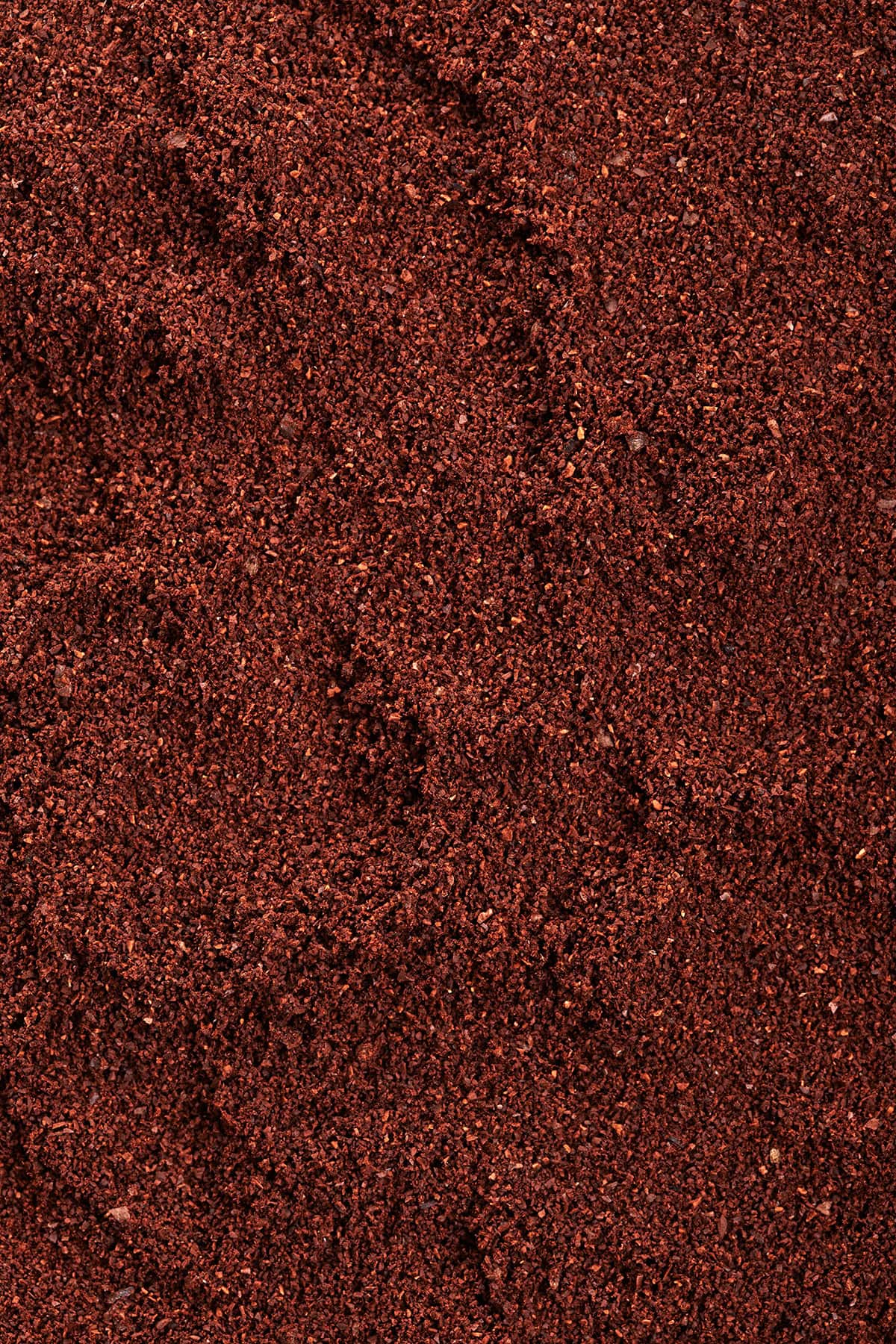
Coffee grounds add nitrogen, potassium, and other trace minerals to the soil. They also improve soil structure and increase microbial activity. Spread a thin layer of used coffee grounds in the planting hole. Be careful not to overdo it, as too much nitrogen can harm young plants. They also help attract beneficial earthworms. These worms aerate the soil and make nutrients more accessible to tomato roots.
Fish Heads or Fish Emulsion
Fish heads are an excellent source of nitrogen and trace minerals. Bury a fish head in the bottom of the planting hole for a slow-release nutrient boost. As an alternative, you can use fish emulsion, which is easier to manage. Fish emulsion is a liquid fertilizer made from fish remains. It provides a quick source of nutrients. Dilute as instructed and pour into the planting hole.
Banana Peels
Banana peels offer potassium, an essential nutrient for tomato health. Lay a banana peel in the planting hole before placing the plant. As the peel decomposes, it releases potassium into the soil. This helps in developing robust root systems and encourages flowering and fruit development. It’s an easy, organic way to support your tomato plants. The peel also contributes to improving soil structure.
Mycorrhizal Fungi
Mycorrhizal fungi form symbiotic relationships with plant roots. These beneficial fungi increase water and nutrient absorption. Sprinkle mycorrhizal inoculant into the planting hole before setting the plant. This encourages a healthy root system. The fungi help the plant access nutrients like phosphorus more effectively. This relationship strengthens plant resilience and improves yield.
Aspirin

Aspirin can boost the plant’s immune response. Dissolve an aspirin tablet in water and pour into the planting hole. This practice can help your tomato plants resist diseases. Salicylic acid in aspirin triggers the plant’s natural defense mechanisms. It’s a simple, preventive measure to keep your tomatoes healthy. Ensure to use non-coated aspirin tablets for best results.
Worm Castings
Worm castings are rich in micronutrients and enhance soil fertility. Add a handful of worm castings to the planting hole for a nutrient boost. They improve soil structure and water retention. Worm castings also support microbial activity in the soil. This leads to healthier, more vigorous plants. They also provide a slow-release source of nutrients throughout the growing season.
Alfalfa Pellets
Alfalfa pellets decompose into a valuable source of nitrogen. They also contain trace minerals and growth-promoting hormones. Add a small number of alfalfa pellets to the planting hole. As they break down, they boost soil fertility and activate beneficial microorganisms. This enhancement improves overall plant health. Alfalfa is a natural and effective addition to your tomato planting strategy.
Kelp Meal
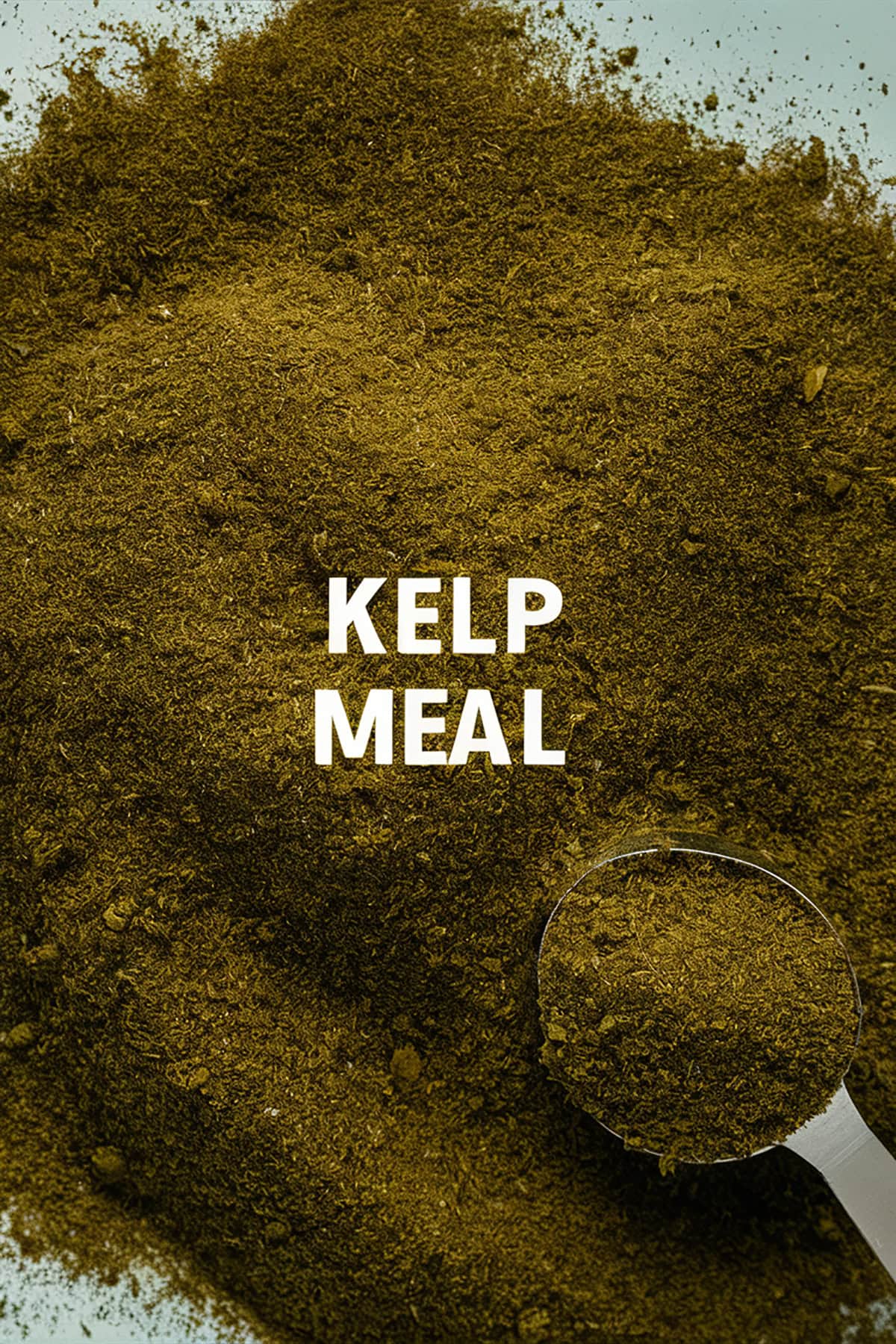
Kelp meal provides a broad spectrum of trace minerals. It also contains growth-promoting substances like alginates and cytokinins. Mix a small amount into the planting hole to support vigorous root growth. Kelp meal improves the plant’s resistance to stress. It also enhances soil structure and fertility. This organic amendment supports healthy, productive tomato plants.
Slow-Release Fertilizer
Slow-release fertilizers provide a steady supply of nutrients. They reduce the risk of over-fertilization, which can harm plants. Add the recommended amount to the planting hole for balanced nutrition. This type of fertilizer supports healthy growth and fruit production. It ensures your tomato plants have access to essential nutrients throughout the growing season. Use as directed for optimal results.
